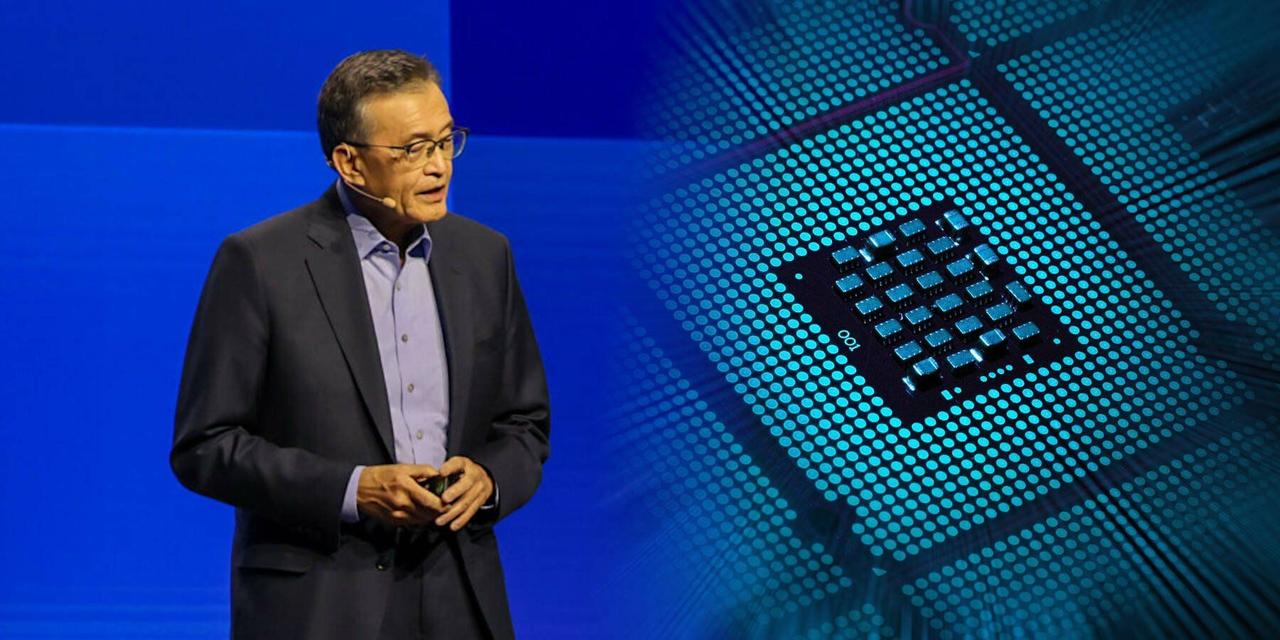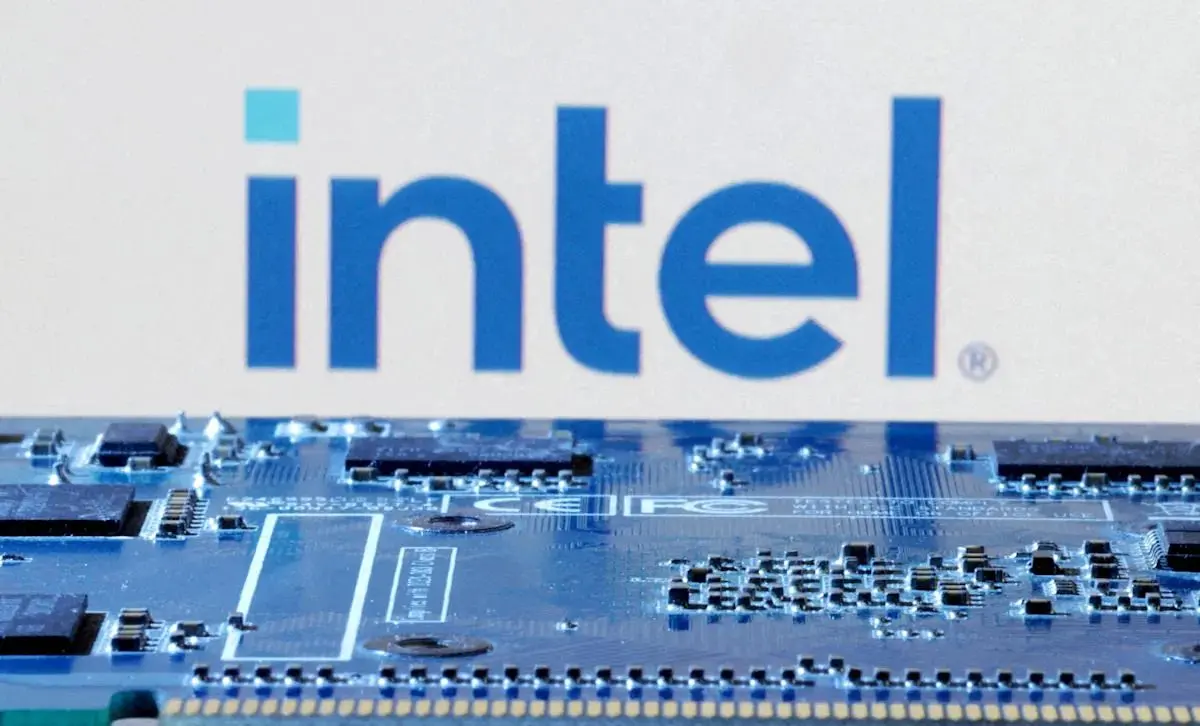Intel's AI-Driven Transformation: Outsourcing Marketing to Accenture
3 Sources
3 Sources
[1]
Intel outsourcing marketing to Accenture with AI likely powered by its own chips
Marketing staff may help train replacements as layoffs are planned Intel has begun informing its marketing staff that many of their roles will be outsourced to Accenture, which will use artificial intelligence to manage parts of Intel's marketing efforts, potentially powered by Intel's own processors. This move is part of CEO Lip-Bu Tan's broader plan to overhaul operations, cut costs, and speed up decision-making. Intel revealed its plans with a statement describing Accenture as "a longtime partner and trusted leader," and said it is expanding that relationship, with affected employees notified by July 11. "The transition of our marketing and operations functions will result in significant changes to team structures, including potential headcount reductions, with only lean teams remaining," Intel wrote in a staff notice. The company did not reveal how many employees could be affected by the cuts. Intel added, "We are focused on modernizing our digital capabilities to serve our customers better and strengthen our brand." Intel describes the shift to Accenture as a way to streamline marketing work. "We need to change our 'go to market' model to be more responsive to what customers want," the company reportedly told its marketing team. "We have received feedback that our decision-making is too slow, our programs are too complex, and our competitors are moving faster." Intel is struggling to regain ground after losing market share in PCs, data centers, and AI chips. Its sales have dropped by about one-third in recent years. "We are partnering with Accenture to leverage AI-driven technologies with the goals of moving faster, simplifying processes and reflecting best practices, while also managing our spending," Intel told employees, adding that some staff may be asked to train their replacements during the handoff period. A few days previously, manufacturing employees were warned that up to 20% of their jobs could be cut in July 2025.
[2]
Intel Bets on AI to Slash Costs | The Motley Fool
Semiconductor giant Intel (INTC 0.55%) plans to lay off a significant number of employees this summer as new CEO Lip-Bu Tan takes drastic action to reduce costs. Some of those layoffs will reportedly occur in the manufacturing business, even as Intel attempts to sell its foundry services to third-party customers. Outside its factories, Intel's marketing division appears to be on the chopping block. A report from The Oregonian's OregonLive.com suggests that the company plans to outsource many of its marketing jobs to Accenture, a major consulting company, and that Accenture will use artificial intelligence to help deliver marketing services. In a note reviewed by the newspaper, the company told employees that any remaining in-house marketing teams would be lean. According to the note, Intel is betting that Accenture's AI technology can help personalize customer experiences, automate processes, and sift through mountains of information more efficiently than its current marketing teams. While we don't know any details about how many marketing employees will be laid off or how much Intel will pay Accenture to outsource marketing services, Intel spends a pretty penny on marketing. The company spent $856 million on advertising, which includes direct marketing, in 2024. That's already down from $950 million in 2023 and $1.2 billion in 2022. The broader marketing, general, and administrative expense category, which includes advertising spending, was $5.5 billion in 2024. Intel could potentially cut its costs by hundreds of millions of dollars by largely outsourcing its marketing operations. For a company that generated $53 billion in revenue last year, that may not seem like a huge amount. But every bit counts as Intel races to return to growth, return to profitability, and convince investors that it has a viable turnaround plan. While reducing costs is critical for Intel, relying on a consulting company and AI for marketing could have the unintended consequence of hurting its brand. At the very least, it's an open question whether this plan will improve or diminish the effectiveness of Intel's marketing efforts. Intel laid off around 15% of its workforce last August, and the next round of layoffs could be similar in size. Some rumors suggest that Intel will slash another 20% from its headcount, or roughly 20,000 employees. Tan is working to remove layers of middle management, which he believes slows the company down. In a message to employees in April, Tan noted that many teams were eight or more layers deep. Team size had become something to be maximized by many managers at Intel, Tan said. While the exact number of layoffs is still unknown, I think it will likely be a large number. Intel is reportedly also considering laying off as many as 15% to 20% of its factory workers, who are responsible for manufacturing Intel's chips as well as chips for third-party foundry customers. It's not clear if Intel is changing anything about its foundry roadmap, although dropping some of its first-party products is possible as the company simplifies and streamlines its operations. Intel's gross margin, which is the percentage of revenue left over after subtracting out direct costs related to manufacturing its products, fell to 32.7% in 2024. That's down nearly 10 percentage points from 2022, and it's far below the 60%+ gross margin the company achieved during much of the 2010s. Winning external foundry customers, which would allow the company to drive more volume through its factories, is a big part of the equation to boost gross margin. But wringing out cost efficiencies is as well. Through layoffs and cost cutting in its manufacturing business, Intel is aiming to boost gross margin and efficiency. Meanwhile, the reported outsourcing of marketing teams and any other layoffs that will hit the non-manufacturing employees will reduce operating expenses. With demand for its products down significantly over the past few years, Intel needs to get smaller to have any chance at turning itself around.
[3]
Inside Intel's AI Overhaul: Accenture Partnership as a Profitability Lifeline | Investing.com UK
Intel Corporation (NASDAQ:INTC)'s stock surged on Tuesday, as investors responded positively to the chipmaker's aggressive cost-cutting measures under new CEO Lip-Bu Tan. The semiconductor giant announced plans to outsource significant portions of its marketing operations to Accenture's AI-powered services, marking a pivotal shift in corporate strategy that could save hundreds of millions in operational costs. This dramatic restructuring comes as Intel races to return to profitability after years of declining revenue and market share losses in the competitive AI chip landscape. Intel's decision to outsource marketing functions to Accenture (NYSE:ACN) represents a fundamental shift in how the chipmaker approaches customer engagement and brand management. Under CEO Lip-Bu Tan's leadership, the company is betting that Accenture's AI technology can deliver more personalized customer experiences, automate complex processes, and analyze vast amounts of market data more efficiently than traditional in-house teams. The transition affects Intel's global marketing workforce, with employees learning their individual fates by July 11, 2025. The move is particularly significant given Intel's historically substantial marketing expenditure, which totaled $856 million on advertising alone in 2024, down from $950 million in 2023 and $1.2 billion in 2022. The broader marketing, general, and administrative expense category reached $5.5 billion in 2024, suggesting potential cost savings in the hundreds of millions of dollars range. This outsourcing strategy aligns with broader industry trends where companies are increasingly using AI not just to support work functions, but to replace entire job categories, or in this case outsource it. Accenture's role extends beyond traditional consulting services, as the partnership emphasizes leveraging AI-driven technologies to help Intel move faster, simplify processes, and implement best practices while managing spending more effectively. The consulting giant's expertise in digital transformation and AI implementation positions it as a strategic partner in Intel's broader turnaround efforts, particularly as the chipmaker struggles with technological delays and lost market share in critical segments. Intel's stock performance on June 24, 2025, showed remarkable strength with a 5.24% gain, closing at $22.30 compared to the previous close of $21.19. The stock demonstrated significant volatility throughout the trading day, with a range between $21.33 and $22.56, while volume reached 49.8 million shares against an average of 89.3 million. Despite the daily gains, Intel's broader performance remains challenging, with year-to-date returns of 11.25% contrasting sharply with negative returns over longer periods: -26.57% over one year, -38.67% over three years, and -57.66% over five years. Accenture's stock performance was more modest but positive, gaining 1.27% to $298.74 on the same trading day. The consulting giant's market capitalization of $186.07 billion significantly outweighs Intel's $97.29 billion, reflecting the stark difference in investor confidence between the two companies. Accenture's financial metrics show stronger fundamentals with a profit margin of 11.61%, return on equity of 26.93%, and revenue of $68.48 billion, compared to Intel's concerning -36.19% profit margin and -$19.2 billion net income. The partnership announcement appears to have provided Intel with much-needed positive momentum, as investors view the cost-cutting measures and AI integration as necessary steps toward financial recovery. However, analysts remain cautious about Intel's prospects, with price targets ranging from $14.00 to $28.30 and an average target of $21.29, barely above the current trading price. The forward P/E ratio of 78.74 suggests high expectations for future earnings recovery, while Accenture's more reasonable forward P/E of 21.19 reflects its established profitability and growth trajectory. *** Neither the author, Tim Fries, nor this website, The Tokenist, provide financial advice. Please consult our website policy prior to making financial decisions.
Share
Share
Copy Link
Intel announces a major shift in its operations by outsourcing marketing functions to Accenture, leveraging AI technologies to cut costs and improve efficiency. This move is part of CEO Lip-Bu Tan's broader strategy to overhaul the company and regain market competitiveness.
Intel's Strategic Shift to AI-Powered Marketing
Intel Corporation, the semiconductor giant, has announced a significant operational change by outsourcing substantial portions of its marketing functions to Accenture. This move, part of CEO Lip-Bu Tan's broader strategy to overhaul the company, aims to leverage AI-powered services to cut costs and improve efficiency
1
.Cost-Cutting Measures and AI Integration

Source: TechRadar
The decision to partner with Accenture is expected to result in significant cost savings for Intel. The company's advertising spend, which reached $856 million in 2024, has been declining from $950 million in 2023 and $1.2 billion in 2022
2
. By outsourcing marketing operations, Intel could potentially reduce costs by hundreds of millions of dollars.Accenture's AI technology is anticipated to:
- Personalize customer experiences
- Automate complex processes
- Analyze vast amounts of market data more efficiently than traditional in-house teams
3
Workforce Impact and Restructuring
The transition will significantly affect Intel's global marketing workforce. Employees are expected to be notified of their individual fates by July 11, 2025
1
. Intel has stated that the move will "result in significant changes to team structures, including potential headcount reductions, with only lean teams remaining."This marketing outsourcing is part of a larger restructuring effort that could see Intel reduce its overall workforce by up to 20%, potentially affecting around 20,000 employees
2
. The company is also considering laying off 15% to 20% of its factory workers2
.Related Stories
Market Response and Financial Implications

Source: Motley Fool
The announcement of this strategic shift has been well-received by investors. Intel's stock surged 5.24% on June 24, 2025, closing at $22.30
3
. However, the company's longer-term performance remains challenging, with negative returns over one, three, and five-year periods.Intel's financial metrics highlight the urgency of these cost-cutting measures:
- Gross margin fell to 32.7% in 2024, down nearly 10 percentage points from 2022
- Profit margin stands at -36.19%
- Net income is -$19.2 billion
3
Industry Implications and Future Outlook
Intel's move signals a broader industry trend of companies using AI not just to support work functions, but to replace entire job categories or outsource them entirely. This shift could have far-reaching implications for the tech industry and beyond.
While the cost-cutting measures and AI integration are seen as necessary steps toward financial recovery, analysts remain cautious about Intel's prospects. Price targets for the company's stock range from $14.00 to $28.30, with an average target of $21.29
3
.As Intel races to return to profitability and regain lost market share in the competitive AI chip landscape, the success of this AI-driven transformation could prove crucial for the company's future in the rapidly evolving tech industry.
References
Summarized by
Navi
[2]
Related Stories
Intel's Strategic Overhaul: Job Cuts, European Retreat, and AI Pivot Amid Ongoing Struggles
25 Jul 2025•Business and Economy

Intel's Major Restructuring: Layoffs and AI Focus Under New CEO Lip-Bu Tan
24 Apr 2025•Business and Economy

Intel Announces Massive Layoffs: 15,000 Jobs to be Cut Amid Financial Struggles
02 Aug 2024

Recent Highlights
1
ByteDance's Seedance 2.0 AI video generator triggers copyright infringement battle with Hollywood
Policy and Regulation

2
Demis Hassabis predicts AGI in 5-8 years, sees new golden era transforming medicine and science
Technology

3
Nvidia and Meta forge massive chip deal as computing power demands reshape AI infrastructure
Technology





